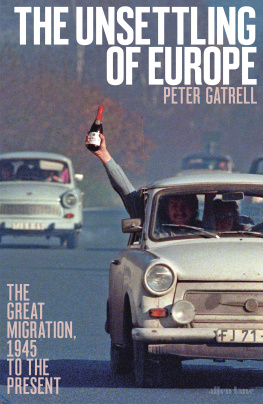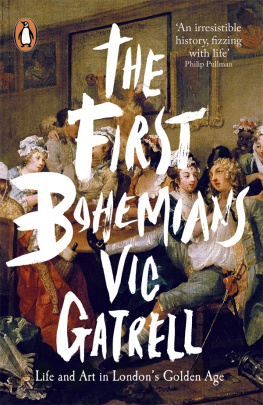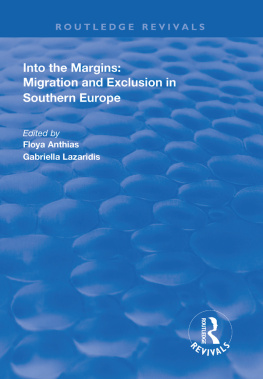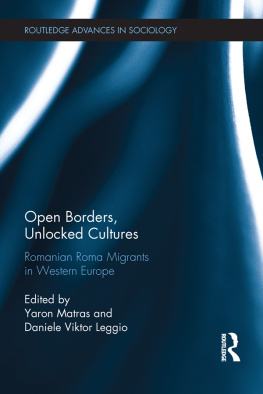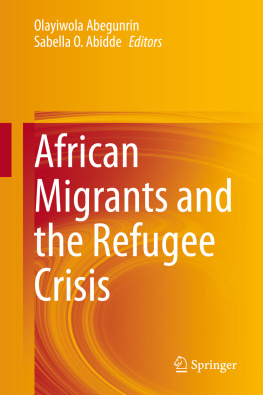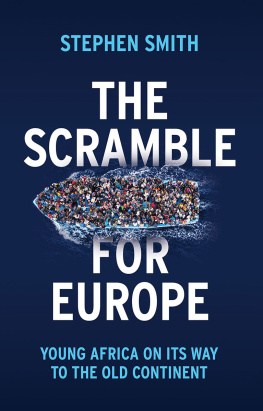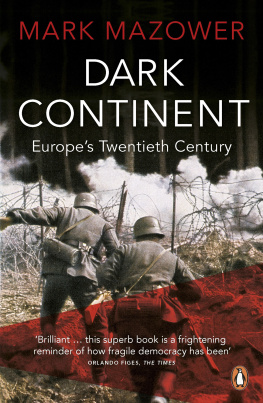

Peter Gatrell
The Unsettling of Europe
The Great Migration, 1945 to the Present

Contents
About the Author
Peter Gatrell is a renowned historian of modern migration and Professor of Economic History at the University of Manchester. He is the author of six previous books on migration history and modern European history, including The Making of the Modern Refugee and A Whole Empire Walking: Refugees in Russia during World War I. He lives in Manchester.
Abbreviations
| AfD | Alternative fr Deutschland (Alternative for Germany) |
| BAMF | Bundesamt fr Migration und Flchtlinge (Federal Office for Migration and Refugees) |
| DOMiD | Dokumentationszentrum und Museum ber die Migration in Deutschland (Documentation Centre and Museum of Migration in Germany) |
| DP | Displaced Person |
| EEC | European Economic Community |
| EEU | Eurasian Economic Union |
| EU | European Union |
| Eurodac | European Data Archive Convention |
| Eurosur | European Border Surveillance System |
| EVW | European Volunteer Worker |
| FAS | Fonds daction sociale (Social Action Funds) |
| FLN | Front de libration nationale (National Liberation Front) |
| FRG | Federal Republic of Germany |
| Frontex | European Border and Coast Guard Agency (Frontires extrieures) |
| GDR | German Democratic Republic |
| ICEM | Intergovernmental Committee for European Migration |
| INED | Institut national dtudes dmographiques (Institute for Demographic Studies) |
| IOM | International Organisation for Migration |
| IRO | International Refugee Organisation |
| MSF | Mdecins sans Frontires (Doctors Without Borders) |
| NATO | North Atlantic Treaty Organization |
| NGO | Nongovernmental organisation |
| ONI | Office national dimmigration (National Immigration Office, France) |
| SBZ | Sowjetische Besatzungszone (Soviet zone of occupation) |
| SIS | Schengen Information System |
| SONACOTRAL | Socit nationale de construction de logements pour les travailleurs Algriens (National Housing Construction Company for Algerian Workers) |
| SPD | Sozialdemokratische Partei Deutschlands (Social Democratic Party, Germany) |
| UNHCR | (Office of the) United Nations High Commissioner for Refugees |
| UNRRA | United Nations Relief and Rehabilitation Administration |
| USEP | US Escapee Program |
| WCC | World Council of Churches |
| WRY | World Refugee Year |
Acknowledgements
F IRST AND FOREMOST, my thanks go to Simon Winder at Penguin Books and Lara Heimert at Basic Books for inviting me to write a book about European migration since 1945, and to Felicity Bryan for being a staunch advocate from the outset. They have all offered much-needed encouragement along the way. I should also like to mention Paul Betts, who originally recommended me to the Felicity Bryan Agency.
Katie Lambright at Basic Books sent me numerous comments on a first draft: she knows how much her careful and perceptive reading improved what was originally a sprawling manuscript. As copyeditor, Kathy Streckfus helped me to put my ideas across more clearly. I am enormously grateful to them both for their advice. I would also like to thank Ellen Davies, Stephanie Summerhays, and others on the team at Penguin and Basic Books, and George Lucas at Inkwell Management in New York. I found it very inspiring at a late stage to work with my picture editor, Cecilia Mackay. Her advice on images and layout was much appreciated.
I am grateful to the Faculty of Humanities and the School of Arts, Languages and Cultures at the University of Manchester for granting me research leave that enabled me to work on this book and to manage all my other commitments.
Much of what I have to say in this book relies heavily on the work of specialists in the field, as well as the published testimony of migrants. I hope the endnotes reflect how much I owe to them. Colleagues at the ever-helpful staff in the Document Supply Unit at the University of Manchester Library kept me supplied with books. I should also like to thank staff at Cambridge University Library and the Library of the London School of Economics and Political Science, where browsing the stacks regularly threw up all sorts of surprises. This is also an opportunity to acknowledge once again the many archivists whose expertise enabled me to carry out research for this and other books of mine.
Given the scope of this book, I needed to consult with people who could advise me on my areas of ignorance. In naming them and expressing my gratitude, I should emphasise that none of them should be held responsible for any errors or misinterpretation on my part.
Katia Chornik, Hans Wallage, and Gustav ngeby contributed valuable research assistance at an early stage, and I am grateful to them for placing at my disposal their knowledge of the literature in Spanish, Dutch, and Swedish, respectively.
A number of colleagues at the University of Manchester offered advice on specific issues and encouraged me along the way. They include Ana Carden-Coyne, Eleanor Davey, Alex Dowdall, Pierre Fuller, Yoram Gorlizki, Sasha Handley, Laure Humbert, Jo Laycock, Margaret Littler, Yaron Matras, Frank Mort, Tanja Mller, Kasia Nowak, Sarah Roddy, Julie-Marie Strange, Bertrand Taithe, Vera Tolz, and Alexia Yates, together with Jackie Ould and Hannah Niblett at the Ahmed Iqbal Ullah Race Relations Resource Centre. I also profited from discussions with Ria Sunga and Becky Viney-Wood, as well as with successive cohorts of undergraduate students.
Elsewhere in the UK, many friends and colleagues provided useful leads and encouragement. They include Naures Atto, Nick Baron, Mateja Celestina, Kelly Hignett, Shirin Hirsch, Susan Hodgett, Aaron Moore, Mirad Nic Craith, Stavroula Pipyrou, Pedro Ramos Pinto, Rosie Rickett, Lyndsey Stonebridge, and Roseanna Webster.
I have incurred many debts to colleagues beyond the UK. In Germany, I particularly appreciated support and information from J. Olaf Kleist, Patrice Poutrus, Margit Wunsch-Gaarmann, Frank Wolff, and Beate Fieseler, as well as Eva Vlker and Joachim Baur, both at the Museum Friedland, and Klaus Magnus and Jrgen Bast. I received helpful advice from Francesca Rolandi about Italy and from Pr Frohnert, Norbert Gtz, Anu Mai Kll, Erik Olsson, Admir Skodo, and Johan Svanberg about Sweden. In Finland, Seija Jelagin and Merja Paksuniemi made valuable suggestions, as did Tomas Balkelis about Lithuania. From the Netherlands, I benefited from brief discussions with Nadia Bouras, Irial Glynn, Leo Lucassen, and Marlou Schrouver, while Frank Caestecker and Jozefien De Bock offered advice on Belgium. Danilo Sarenac helped me out with information about Serbia, and Emilia Salvanou did the same for Greece. Beata Halicka gave helpful advice about Poland after the Second World War. Farther afield, I enjoyed stimulating conversations in Australia with Joy Damousi, Klaus Neumann, Sarah Green, Jordy Silverstein, Alexandra Dellios, May Tomsic, and Jayne Persian, not forgetting my former colleague Laurence Brown. In the United States, I learned a lot about aspects of European migration from Theodora Dragostinova, Anna Holian, Andrew Janco, Michael Kozakowski, Aldis Purs, Karl Qualls, Lewis Siegelbaum, and, above all, Pamela Ballinger, whose work continues to be a source of inspiration and whose friendship I value greatly. I apologise if I have inadvertently overlooked anyone.
Next page
